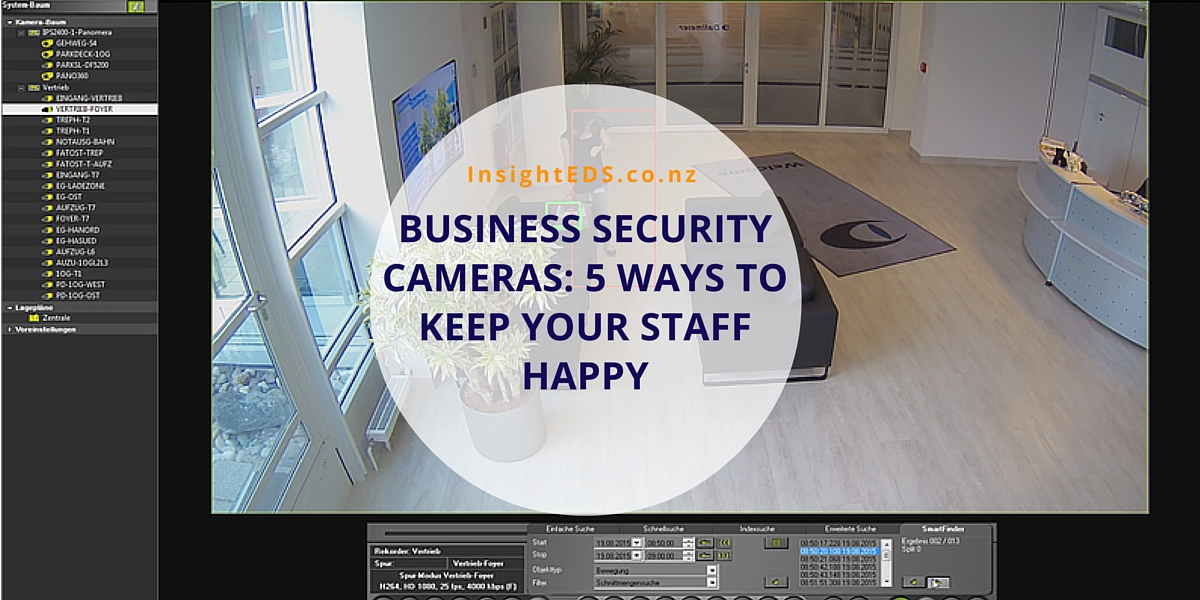Business security cameras (video surveillance cameras) are important for more than just catching thieves, or reducing the time employees spend goofing off.
They can also be used to increase customer satisfaction, improve and measure employee performance, ensure data security, ensure compliance with New Zealand security laws, and increase business productivity.
Up to 66% of small business owners believe that business security cameras and video surveillance are their most valuable security measure (as reported by Small Business Trends staff writer Joshua Sophy).
In fact, some companies in New Zealand now have conditions around their business data being in a secure premises, with business security cameras being in place to monitor all activity.
But How Can You Reduce Their Impact On Staff?
Whilst some employees may struggle with the big-brotherish aspect of business security cameras, this doesn’t need to be the case.
Here are 5 things you can do to keep your staff happy:
- Be Upfront. Don’t hide the fact that there are cameras in the workplace, that computers are monitored, or that phone calls are recorded. Explain how the monitoring protects employees and helps you help them do their work. Honest employees won’t be concerned, and the dishonest ones may be discouraged and look for work elsewhere, which is what you want.
- Establish a Company Policy. Formulate an employee privacy policy and stick to it. Define exactly why cameras are there, when they are to be used, and how. For example, you may want cameras in your warehouse to observe workflows and promote better safety practices. Or you may want to record customer service calls for the purpose of finding scripts that work well.
- Use Monitoring For Performance Improvement, Not Punishment.
- Show Employees How Video Surveillance Works for Them. Share what you discover from analysing the video. Use it for employee training. Ask employees to review videos for process improvement.
- Limit Use. That means keeping surveillance out of places where employees can expect some privacy, such as a break room.
Don’t forget, it’s your business and you have the right to protect it.
You also have the right to record what happens on your premises, within certain legal and ethical boundaries.
The majority of businesses now monitor their employees in some way.
With a few simple precautions, workers can safeguard their personal privacy on the job. And employers can better protect their businesses and the people who work there.
“Reasonable monitoring and surveillance activities protects the rights of employees, creates a safe work environment, protects sensitive corporate information and assets, and demonstrates compliance with federal laws” (Kristin Morgan)







